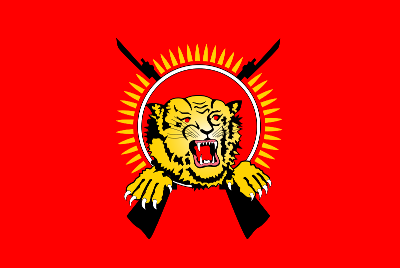After four years of studying evil, after spending hundreds of hours analyzing audio from my interviews with Holocaust survivors, today I finally get to defend my PhD dissertation. I?m excited and humbled by that opportunity.
This, however, is not a post on that accomplishment. This is a post on the power of overcoming obstacles. As a child, abandoned by my father at 13, eldest of six children, it could have been easy for me to turn to the streets. The fact is that the number one cause of death for African-American males ages 18-34 is homicide.
I understand the tragic reality of that statistic. R.I.P. to may fallen homeboys:
I?m lucky that my name doesn?t appear on that list. I?ve been to the funerals and seen the pain their parents felt in having to bury a child. I know the pain of having to lose a best friend. I was lucky to avoid becoming another statistic.
Despite the tragedy of their deaths one of us made it out. And I know, were they still to be alive, they?d be proud of me. If someone were to ask me how I did it, and what information I can impart to at-risk urban males, of any color, I?d say set a goal, work hard and be patient. For me, my way out was education.
There are so many that face that statistic, that have a personal understanding of its meaning, that it would be a waste of a degree not to help those that might not be capable of helping themselves. Fortunately for me, I have accepted a fulltime university position for the fall, which will allow me to finally recognize my dream of being a university professor and also help at-risk children overcome that daunting statistic so that they too may make it out of the ghetto.
Globalizing Americana: Part 29 ? Obstructionist and Non-Obstructionist Peace Organizations
Obstructionist and Non-Obstructionist Peace Organizations
The fifth and final function of a newly formed peace organization is to incorporate new members. The main difficulty with increasing membership is minimizing attrition. Keeping attrition low, especially during peacetime, is an essential responsibility for peace organizers. New members should be motivated to offer their assistance, but organizers should temper zealous members from thwarting the group?s central ideology of non-violence.
Arguably, one of the greatest challenges peace organizations face are zealous members eager to change the world. One might think is an advantage to the organization, but without well-defined objectives, members can radically transform the nature of an organization and ultimately undermine its ability to peacefully protest and to support its causes.
To combat a perceived idleness, some peace organizations have taken obstructionist stances, e.g. interrupting the military objectives of opposing agencies through the interposition of human bodies. For example, the iconic picture of�"Tank Man"�during the Tiananmen Square Protests of 1989 is a hallmark representation of an "obstructionist peace advocate."
For me, and my particular brand of pacifism, I cannot and do not endorse obstructionist peace movements. I do support a movement?s right to protest injustice, but insofar as human lives are required to obstruct or barricade, to deflect or detour militarization efforts, I cannot and will not endorse such acts.
Note: a�sit-in�is not obstructionist. Thus, I would endorse those groups opting to use this means of protest. But as to more radical forms of peace movements with obstructionist stances and belief systems, I do not support them, and my arguments are not constructed with such objectives in mind.
Since peace organizations vary, the incorporation of new members will differ according to the motivations and ideologies of each organization. Some people will be attracted to obstructionist peace movements, others to non-obstructionist organizations. My support of non-obstructionist peace organizations requires that I formalize my concept of a non-obstructionist stance.
Peace organizations of the 21st century must cater to the diverse needs of interested members. To do this properly, however, requires that each organization clearly identify how it implements its central ideology, either through obstructionist or non-obstructionist means. Obstructionist members cannot be tolerated within a non-obstructionist organization, though obstructionist organizations can tolerate non-obstructionist members.



Originally published for Blogcritics.
 norms,
norms,  americana,
americana,  culture,
culture,  assimilation,
assimilation,  globalization,
globalization,  ethics
ethics

Starvation in Sri Lanka
Starvation in Sri Lanka
The Sri Lankan government is currently battling militant Tamil rebels in the northern war zone of Sri Lanka. This battle between the government and the rebels has escalated and has resulted in the deaths of then of thousand of civilians along the Mullaiththeevu coastline.
Reports published earlier this week suggest that 165,00 civilians face imminent starvations, as the Sri Lankan government has obstructed humanitarian efforts on the grounds that the region is currently unsafe.
Apparently, the Sri Lankan government is willing to tolerate high, almost genocidal, levels of causalities in their fight against the Liberation Tigers of Tamil Eelam (LTTE), the local militia movement.

If the international community stands by and allows these causalities to mount, without third party intervention, hundreds of thousands of civilians could die of starvation within the month of May.
The Sri Lankan government, led by President Mahinda Rajapaksa is engaged in a full scale war against the LTTE, but the more international efforts are prevented from aiding the civilians along the LTTE Mullaiththeevu controlled coastline, the more the intentions to suppress the militant LTTE movement endorses the extermination of every civilian living under their control.
Civilians cannot and should not be held to blame for the actions of the LTTE and their battle against the government. Unfortunately, they are caught between the crossfire and international human rights organizations must be allowed to intervene on their behalf. Otherwise, it appears that the Sri Lankan government intends to endorse the wholesale extermination of all those living in LTTE control regions.



 tamil,
tamil,  starvation
starvation,
 genocide
genocide

